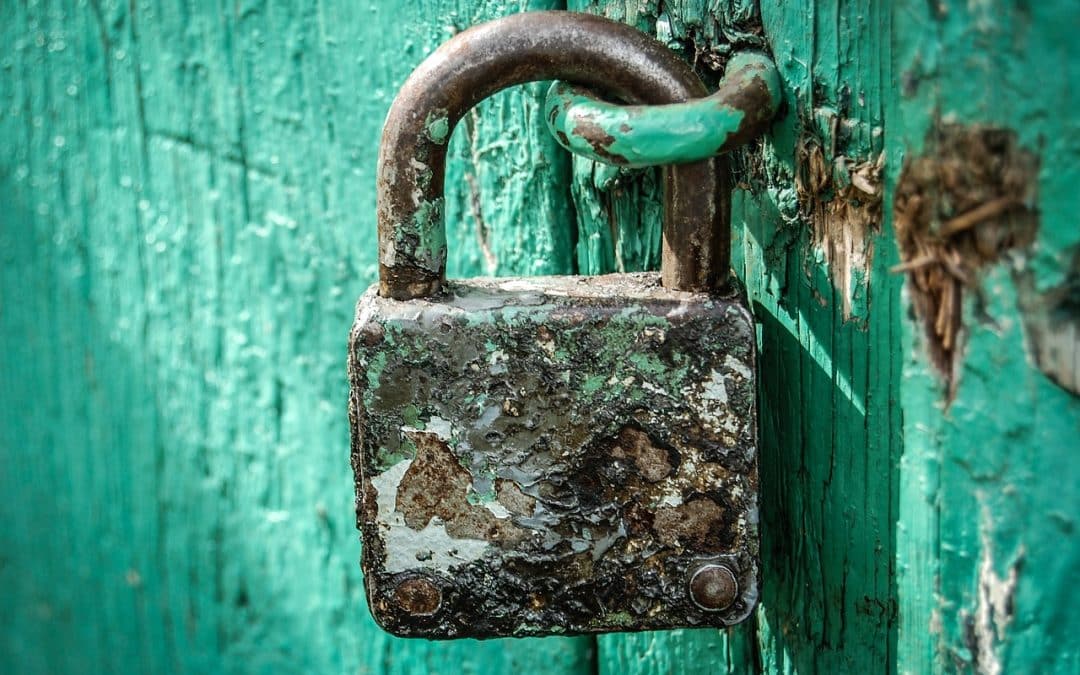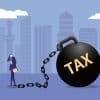In recent years, it has become increasingly apparent that property rights in the United States are facing unprecedented restrictions and challenges. Whether it’s building a shed, raising chickens, or simply making improvements to one’s home, homeowners are often met with a complex web of regulations and bureaucratic red tape that can feel as though the entire country has turned into one massive homeowners’ association (HOA). The frustration lies in the growing realization that despite paying property taxes, the rights of property owners seem to be diminishing, replaced by a need to seek government permission for even the simplest of actions.
The Erosion of Property Rights
Historically, property rights in the U.S. were seen as a cornerstone of individual liberty. The Founding Fathers, particularly James Madison, viewed property rights as not only encompassing land and tangible assets but also ideas and personal freedoms. The government, they believed, was instituted to protect “property of every sort,” reflecting a profound understanding that property was a fundamental human right tied to personal autonomy and liberty (U.S. Constitution.net).
However, over time, the interpretation and application of property rights have evolved, often at odds with the original intent. Modern regulatory practices, such as zoning laws, building codes, and environmental regulations, often impose significant restrictions on what property owners can and cannot do with their land. These regulations are justified under the government’s “police power,” which is intended to secure public safety, health, and welfare. Yet, critics argue that these powers are increasingly being used to overreach and limit individual freedoms without sufficient justification or compensation (Cato Institute).
The Expansion of Governmental Control
A key example of this shift can be seen in the interpretation of the Fifth Amendment’s Takings Clause, which states that private property shall not be taken for public use without just compensation. While this clause was designed to prevent government overreach, its interpretation has expanded over time. The 2005 Supreme Court case, Kelo v. City of New London, allowed local governments to seize private property for economic development projects, a decision that sparked nationwide controversy. The ruling broadened the definition of “public use” to include private economic development, leading to fears of widespread property seizures for the benefit of private entities (U.S. Constitution.net).
Justice Sandra Day O’Connor, in her dissenting opinion, warned of the potential dangers to individual property rights, arguing that the decision could disproportionately affect the poor and politically weak. Many states subsequently enacted laws to restrict the use of eminent domain, but the damage to public confidence in property rights had already been done (State Court Report).
Regulatory Overreach: Living in a Nationwide HOA?
The comparison of the U.S. to a nationwide HOA is not far-fetched. Homeowners’ associations (HOAs) are private organizations that enforce rules and restrictions in residential communities to maintain a certain standard of living, often regulating the appearance and use of property. While those who choose to live in an HOA community agree to these rules, the creeping regulation of private property by local, state, and federal governments feels less like a choice and more like an imposition.
For instance, something as seemingly simple as building a small shed or raising a few chickens can require multiple layers of approvals, permits, and adherence to strict zoning regulations. This bureaucratic maze can result in significant delays, unexpected costs, and a sense of helplessness among property owners. In many cases, homeowners are responsible for the maintenance of public infrastructure, like sidewalks, yet have little say in the broader planning decisions that affect their properties (Cato Institute; State Court Report).
The Disappearance of True Ownership
Reflecting on the past, many of our grandparents were able to build, modify, and expand their homes as needed, often without any government interference. Today, this freedom has been replaced by a series of checks, balances, and permissions that undermine the very notion of ownership. Why have we allowed this to happen? One reason may be an overemphasis on the need to control land use for the “greater good,” often at the expense of individual freedoms.
Moreover, as property rights become increasingly regulated, the line between public and private interests have blurred. Governments may decide to use land for “public” purposes, such as infrastructure projects or economic development, without adequately compensating the owners or considering the long-term consequences for property rights.
Is There a Way Back?
The question remains: how do we restore the balance between necessary regulation and the protection of property rights? One potential solution is to return to a more stringent interpretation of the Constitution’s protections, ensuring that any government intervention is accompanied by fair compensation and justified by clear public benefit.
Advocates argue for stronger judicial protections for property rights, emphasizing the need to guard against expansive interpretations that could undermine these rights further. For instance, recent Supreme Court rulings, such as Tyler v. Hennepin County, have reaffirmed that any government intervention affecting property should require full and fair compensation, highlighting the necessity of maintaining vigilance against government overreach.
Property rights in the United States are at a critical juncture. As regulations and government control continue to expand, property owners are left questioning where their rights have gone. For those who prefer the certainty of an HOA-style living arrangement, that choice should remain available. However, for those who believe in the sanctity of private property and the freedoms it represents, a renewed focus on constitutional protections and a resistance to regulatory overreach are necessary to safeguard these fundamental rights for future generations.
By upholding the principles envisioned by the Framers and ensuring that property rights are respected and protected, we can prevent the erosion of one of America’s most cherished liberties.
John G. Stevens is publisher of Weekly Real Estate News



















I have said for a long time, the Government does not want us to be homeowners with the property rights attached. Look at California, again they are trying to pass very strict rent control with not 1, but 2 measures on the November ballot. One removes Costa Hawkins which would allow every property to fall under rent control, taking most of the rights away from the landlords/owners of said properties.
Wake up, NWO…you will have nothing and be happy🤬🤬🤬
This article is right on. So many people however don’t seem to grasp what is happening and when you try to talk about it they tune out. Or say oh well, nothing you can do about it. They just give in. So frustrating what is going on.
This is absolutely the case. I firmly believe that if they want to close the gap between the ” haves ” and ” have nots ” as is referred to in the case of property ownership, the government needs to step back on the regulatory impositions and let the marketplace dictate. That is why there is a shortage and will continue to have a shortage of housing.
Well stated; it is indeed, a growing concern as private property rights are impacted while at the same time taxation and regulation increase. I speak as a property and landlord of single family homes in a large metropolitan city the now dictates who I can rent to, without any subjective choice; limits my screening process, gives the tenant the right to add a ‘roommate’ and prohibits collecting addition rent for increased occupancy. Evictions are stringently limited, whether rent is paid or current – I am required to allow an occupant to remain in place and to provide utilities for them at my expense. Sure I can at some point get a judgement for any amounts owned, doing so means substantial outlays on my part with little or no likelihood of recovery. Local governing mentality is ‘we all must help with the homeless crisis’. Simultaneously I must pay and be current on any mortgage balance and/or property tax. I have been affected by ‘downzoning’ via newly passed ordinances which limit what was the development potential of the property when I purchased and not received compensation for my loss of value.
We need to recognize and compensate private ownership as confirmed in Tyler v. Hennipen
Excellent article and I applaud you for the thoughtful background and history and the importance of private property ownership rights.
cAR and NAR have all but abandoned this concept and have taken their eyes off the ball. We need not be worried about frivolous things. We need to be worried about the foundational and fundamental bundles id rights that accompany the ownership of property.
Sadly, I can see very clearly that the current government and its manipulators are focused on a campaign to discourage homeownership. Look at how they frame articles to easily influenced young people. Why are they so easily influenced. Because the schools have dumbed them down. They do not reward or encourage independent thinking or seductive reasoning. Just believe what we say and by the way. It’s always couched in “ underprivileged”. Homeless or some other social agenda that may or may not be true or even relevant. But these young folks are intent on learning from their i phones instead of their elders.
I agree that the government should not be restricting property rights except in cases of safety, public interest, etc. But it’s often the elected state and local officials that are quickest to set restrictions or use eminent domain. I hear folks blaming this and everything else wrong in their world on the Democrats or the Republicans in D.C. when in reality, the problems and solutions are closer to home. Quit voting for a political party/straight ticket. WE are voting these people into offices that affect our lives and livelihoods.
As someone who has sat on a Zoning Variance Board in a large city, I can say that zoning laws protect all parties. When you live on a small building lot, where you put your tool shed or garage can be a fire hazard to the adjacent properties. How close you put your carport to the property line can affect water runoff to the neighbors. Building on 100% of your lot also causes water runoff and prevents rainwater from seeping into water tables.
Zoning laws were created to help the greater good. Yes, they can be a nuisance but if you live on a small lot, they help make better neighbors.
Nobody is saying there should be zero zoning laws or reasonable restrictions on what one can do with their own property. The issue is that pesky word “reasonable”. And how can we determine when the line has been crossed? There is a litmus test; if the law or regulation is there to protect the community and make “good neighbors”, it’s probably OK; if the law or regulation is their to promote a government (or those influencing said government) agenda, it is an overreach. Example: The leftists in charge of our government have made no secret of their desire to “densify” our neighborhoods and laws and regulations have been passed/imposed to further this agenda; this is a political agenda that has nothing to do with maintaing community standards.
I’m a strong advocate for property rights but this article was redundant with only adding sheds and chickens as examples. People’s comments gave clearer examples
There should be an immediate and permanent halt to the Seizure of private property for unpaid property taxes. It is unconscionable for a low income retired homeowner to be evicted and lose their home due to unpaid taxes they cannot afford. Property taxes should become $0 when a homeowner retires – age 62 or 65. The government has gouged long enough!!
Yes, I agree, and here is another example of crazy government regulation. As a Landlord, I have to deal with AC systems that need to add freon to keep my Tenants cool, except the government banned the r22 freon, to try to force everyone to get rid of their “still functioning” systems, to then, having to buy new systems, wasting money for nothing.
As soon as Americans understand the agenda is to bring America to its knees; destroy middle class, destroy families, destroy education, destroy infrastructures, destroy our military, destroy our economy, destroy our founding documents Constitution, Bill of Rights, Declaration of Independence and of course destroy personal property rights – the powers that be don’t want you to own anything. Just because it’s not on TV doesn’t mean it’s not happening. It’s always done in incremental steps so you don’t notice until it’s too late.